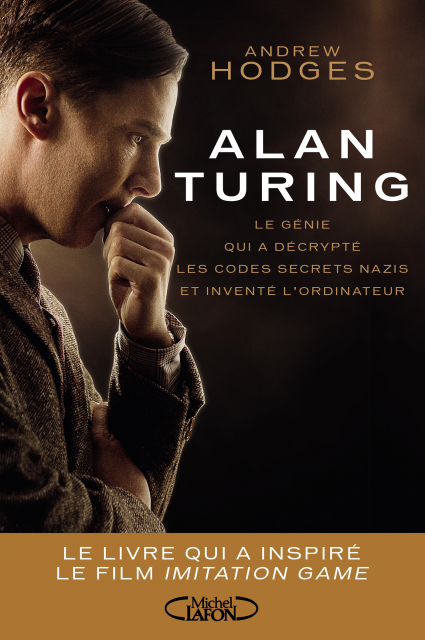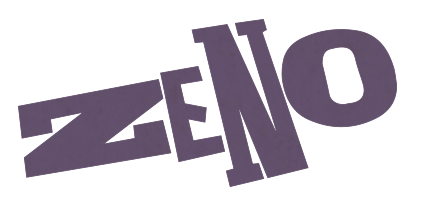
Earlier this month, France Culture broadcast a mini-documentary series about Alan Turing, the genius mathematician who cracked Germany’s Enigma Code (among other achievements). Andrew Hodges, author of ALAN TURING: THE ENIGMA was a contributor to the series. All of the episodes are available from the France Culture website.
Hodges’s Turing biography published by Michel Lafon in France (and Canada), Here’s the synopsis…
Génie de l’informatique et héros de la Seconde Guerre mondiale, Alan Turing est célèbre pour avoir décrypté les communications codées de l’armée allemande en venant à bout d’Enigma, la machine de chiffrement utilisée par les nazis, réputée inviolable.
Il faut dire que lorsqu’il « casse » le code secret allemand, à moins de 30 ans, le mathématicien n’en est pas à son premier coup d’éclat. Déjà, en 1936, il a dessiné les contours d’une première machine programmable, ou « machine de Turing », capable d’effectuer n’importe quel calcul mathématique : c’est l’ancêtre de l’ordinateur.
Après la guerre, Alan Turing poursuit ses recherches et se consacre en pionnier aux possibilités offertes par l’intelligence artificielle. Mais l’ex-héros national est persécuté à cause de son homosexualité et condamné en 1952 à la castration chimique. Deux années plus tard, à l’âge de 41 ans, Alan Turing met fin à ses jours en croquant une pomme empoisonnée au cyanure.
Cette biographie, qui mêle histoire des sciences, politique et philosophie, nous dévoile la vie hors norme de l’inventeur, longtemps méconnu, qui a révolutionné nos vies.
ALAN TURING: THE ENIGMA is published by Vintage in the UK, and Princeton University Press in the US. Here’s the English-language synopsis…
Alan Turing was the mathematician whose cipher-cracking transformed the Second World War. Taken on by British Intelligence in 1938, as a shy young Cambridge don, he combined brilliant logic with a flair for engineering. In 1940 his machines were breaking the Enigma-enciphered messages of Nazi Germany’s air force. He then headed the penetration of the super-secure U-boat communications.
But his vision went far beyond this achievement. Before the war he had invented the concept of the universal machine, and in 1945 he turned this into the first design for a digital computer.
Turing’s far-sighted plans for the digital era forged ahead into a vision for Artificial Intelligence. However, in 1952 his homosexuality rendered him a criminal and he was subjected to humiliating treatment. In 1954, aged 41, Alan Turing took his own life.
ALAN TURING: THE ENIGMA was adapted into the Oscar-winning movie The Imitation Game, starring Benedict Cumberbatch as Turing.

